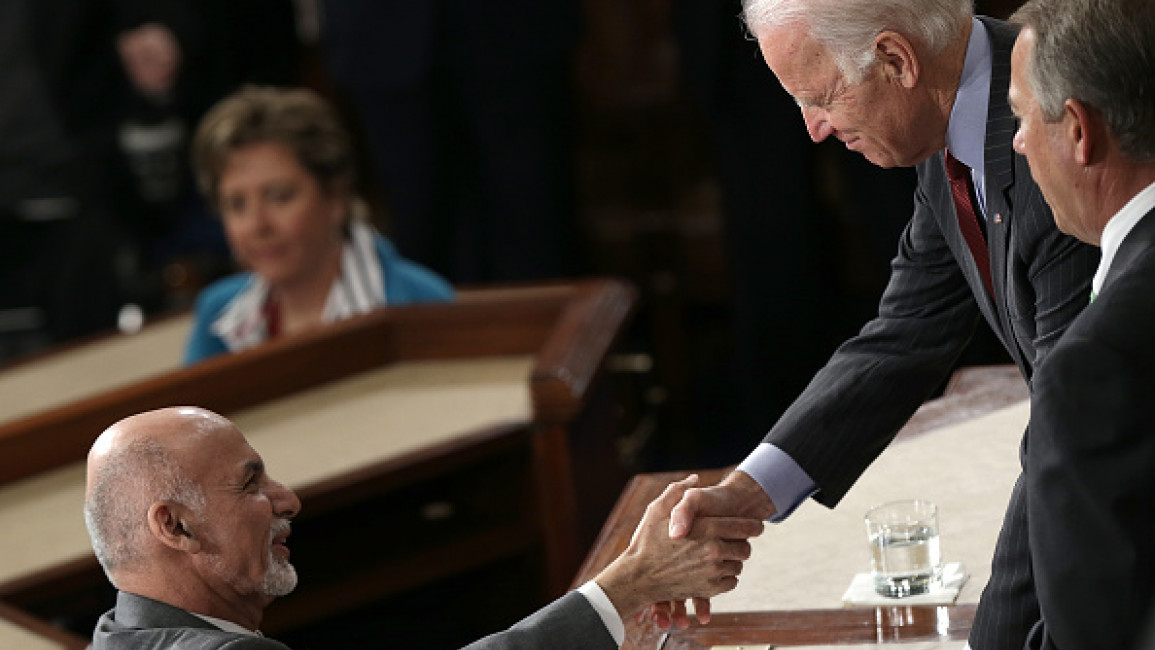Afghan leader to meet Biden as US exit looms
Afghan leader Ashraf Ghani faces the cold reality of the end of US military presence in Afghanistan Friday when he meets with President Joe Biden in the White House.
Under increasing threat from an emboldened Taliban insurgency, Ghani will be hoping for a significant commitment of US aid to his government, which will be without the on-the-ground support of US forces for the first time in nearly two decades.
But any hopes for a delay in America's exit from its longest war are likely to be snuffed.
Speaking in Paris Friday, US Secretary of State Antony Blinken said the US could no longer adhere to the same approach to Afghanistan of the past 20 years, despite the fresh Taliban gains on the ground.
"The status quo was not an option," he said.
Biden has ordered the departure of all US forces from Afghanistan by September 11, 2021, the 20th anniversary of the attacks that triggered the invasion.
The final pullout, begun last year by then-president Donald Trump and confirmed by Biden in April, has moved fast.
Some speculate the exit of some 2,500 US troops and 16,000 civilian contractors could be mostly completed in July.
"This visit is first about our ongoing commitment and support to the Afghan people and to the Afghan National Defense and Security Forces," White House spokeswoman Karine Jean-Pierre said Thursday.
"The president will emphasize the need for unity, cohesion, and for the Afghan government to focus on key challenges Afghanistan faces."
But the White House will also pressure the Afghan leader to strike a deal with the Taliban.
"We believe that a negotiated political settlement is the best way to end the conflict," Jean-Pierre told journalists.
Possibly underscoring how uncomfortable the situation is for both sides, no press conference was planned.
Ghani and Abdullah Abdullah, who is in charge of stalled negotiations with the Taliban on a power-sharing deal, arrived in Washington on Thursday.
The looming US exit has left the country in a deep state of uncertainty, with many worried about the return to power of extremists who applied a brutal version of Islam to the population when they ruled from 1996-2001.
The Wall Street Journal reported that a new US intelligence report assesses that the Taliban could possibly capture Kabul within six months - though other experts downplay that scenario, at least in the short-term.
Still, the situation is being compared to the US withdrawal from Vietnam in 1973.
Two years later, the South Vietnamese government that Washington had backed and then abandoned fell to North Vietnamese troops.
Still apparently hoping to slow the US pullout, Ghani and Abdullah met Thursday with members of Congress, many of whom criticize Biden's decision to leave.
Senate Republican leader Mitch McConnell urged Biden to delay the withdrawal after talks with the Afghan leaders.
"President Biden's decision to withdraw US forces leaves our Afghan partners alone to confront threats that his own top advisors acknowledge are grave and growing worse," McConnell said.
But Blinken's remarks Friday emphasized the Biden administration’s hard commitment to the September deadline.
"We are seeing elevated attacks on the Afghan security forces in certain parts of the country compared to a year ago," he acknowledged.
But, he added, "Had we not begun the process of drawing down ... the status quo would not have helped ... The status quo was not an option."
On Friday, Ghani and Abdullah will meet with Defense Secretary Lloyd Austin at the Pentagon in the morning, and in the afternoon with Biden in the White House.
Biden is expected to reaffirm billions of dollars in US aid for the country, and possibly make arrangements for US civilian contractors - essential to keep the Afghan air force flying - to remain there.
The administration is also working on a plan to evacuate some 18,000 Afghan interpreters and others who worked for US forces and who are under personal threat from the Taliban.
The United States will also provide three million doses of Johnson & Johnson coronavirus vaccine to Afghanistan to be shipped as soon as next week, according to Jean-Pierre.



